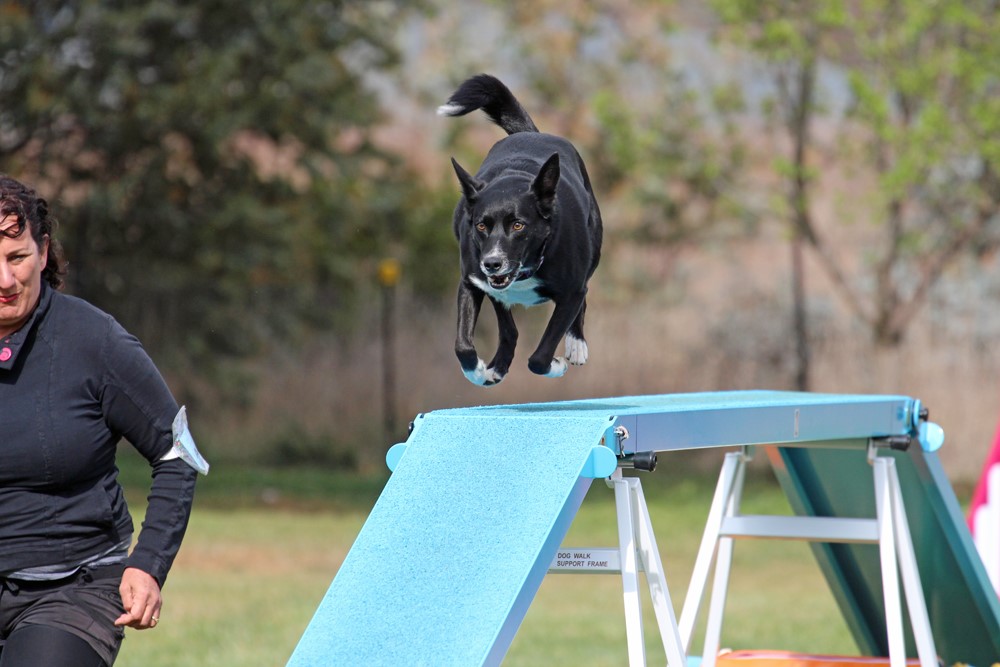What is your private passion and how did it develop?
Besides sailing Lasers and catamarans, my other passion is dog agility training, with my Kelpie X Border Collie rescue dog, Dash. I've been doing it for about four-and-a-half years. As soon as I got her, I knew I would need to do some sort of dog sport with her: she was a highly intelligent, active and rather destructive puppy. We started with obedience training and then moved into agility training, and now compete in the Masters category. The dog needs to be attentive and focused, keen to do what you want them to do and to please you. That's why herding dogs make very good agility dogs.
What does it involve and how much of your time does it consume?
It's a sport that involves the dog and the handler. You have to get around an agility course that consists of jumps, tunnels and sometimes other obstacles. There are various disciplines. You start by teaching the dog to go through a course at a low height and teaching them the hand signals and body movements that signal what you want them to do. A lot of the skill is in communicating well with your dog, but the handler also needs to remember the course, which gets longer and more complicated at higher levels.
I tend to enter agility and jumping trials and games at an event, and in normal circumstances I might compete in 8-10 competitions a year. I don't spend a lot of time training; it's more about consistency. Training for hours is bad for the dog and only creates frustration; generally, Dash and I would do 5-10 minutes a day in the paddock as part of her regular walks.
How does this passion enrich your life?
One of the nicest things about agility training is developing a close relationship with your dog.
You are a team on the course. We also go camping together when we attend trials. I do it because it's fun and I can bond with Dash, and it gets me out of town. But don't get me wrong - I am competitive, too.
Dash is my first agility dog, and the great thing about the sport is that you don't need any particular type of dog to do it and you don't need to be super fit. It's something anyone can do. I enjoy it because it's outside the normal sphere of my intellectual job; it's a sport that is physical and spatial. You have to get your head around the map of the course, which requires a different type of brain work. Each course is different and you only get a short orientation of the course.
What (if anything) does this personal passion and your enjoyment of it bring to your working life?
People who compete tend to be somewhat older and I often meet people who have Parkinson's or know someone who has Parkinson's, so it's interesting to be able to chat to them about my research. But the agility competition is more a chance for me to get away from work-related things. It's really good to think about something else.
Deborah is not the only UNE staffer who enjoys dog agility training. She regularly trains with colleagues Kerryn Allen, Sonya Glavac and Catriona Millen.


